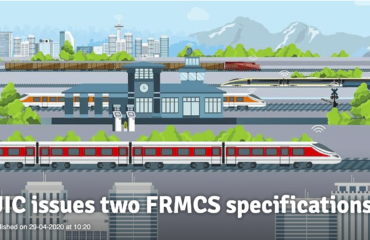
As the year moves to the halfway point, many people will be looking forward to a recreational break. Before going on leave, it is helpful to consider your achievements in the first half of the year and whether you have completed any of your personal career goals. If training or professional development was on your to do list, have you achieved any of your goals?
In our study (Piip and Jain 2015[i]), discussed in my last article, more than 350 rail professionals from 30 countries, described career advancement and talent recognition as barriers to developing their career further. In particular, the study started by asking participants whether they were getting access to learning and career development opportunities at work. Almost 80 percent of respondents believed that the type of opportunities needed to steer their career in the direction they wanted it to go, were activities that they needed to instigate themselves. While some people liked their job role and the opportunities it provided:
‘I like my field of work, having relations with international organizations and getting international experience, attending international events, sharing the experiences and so on…’. (35-year-old, Infrastructure Rail Professional)
Many professionals believed they needed to take a more proactive approach:
‘I am continuously working on networking and raising my profile as well as continuing to work on various challenging projects’ (55-year-old, Employee without Management function) or,
‘Undertaking further education (at own expense) to improve external prospects to develop my career outside of the rail industry’ (43-year-old, Employee without Management function)
From an organisation’s point of view, assisting employees to develop their career is a different skill to assessing performance. A performance conversation, undertaken throughout the year, is about how you are doing your job and whether you are doing it well, whereas a career conversation is about what your aspirations are for your career and how can the organisation help you to work towards this goal? A useful report from the Institute for Employment Studies that discusses this concept further can be found by following the link at the end of this article[ii].
Many organisations are pressed for time and often cannot offer the opportunities for individuals who want to expand their career beyond the horizons of their current employer. It is for these reasons, that many do not touch on helping individuals fulfil their career aspirations. Back to our study… Our results indicated that rail professionals valued several opportunities to develop their career further, and these were often opportunities that they had instigated themselves as follows:
Exchange to other countries – 60.2%
Job Rotation – 49.6%
Workplace Experiences – 46%
Participation in conferences – 37.2%
Research in own area of expertise – 31.9%
Consultancy Services to clients – 17.7%
Enabling part-time work – 14.2%
Sabbatical – 12.4%
Exchange to other companies – 29.9%
Over the next few weeks, think about what opportunities you can instigate to develop your career.
Remember – “You can’t build a reputation on what you’re going to do.” (Confucius)
Dr Janene Piip
Talent consultant and career practitioner
Australia
www.janenepiip.com.au
janenepiip@gmail.com
https://www.linkedin.com/in/dr-janene-piip-0906641a/
[i] Piip, J. and Jain, A., 2015, ‘Talent Management of experienced professionals in the rail industry’, UIC, Paris
[ii] https://www.employment-studies.co.uk/system/files/resources/files/mp108.pdf





